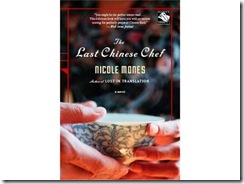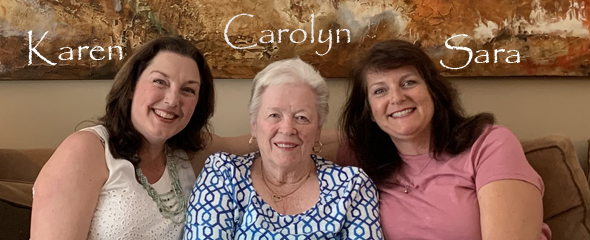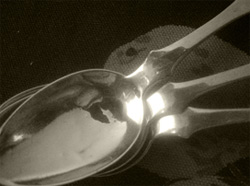 Awhile ago a friend told me to read the book The Last Chinese Chef: A Novel by Nicole Mones (who also wrote Lost in Translation).
Awhile ago a friend told me to read the book The Last Chinese Chef: A Novel by Nicole Mones (who also wrote Lost in Translation).
I promptly visited the bookstore and bought a hard copy. Usually I read books on my Kindle, but this time, since it was about cooking, I assumed I might want the actual book in hand. It’s been on my bedside table for a couple of months and I’d just had too many other books to read first. When I started reading this one, though, a day or two ago, I could hardy put it down.
The book was enchanting. And I know next to nothing about Chinese cooking. I used to eat Chinese with some regularity. BUT. Then I married a diabetic, and we did eat Chinese food occasionally, but once the medical world figured out that counting carbs in a meal was what spelled the secret to diabetic control, well, going to Chinese restaurants became a very risky proposition. When I cook anything Asian at home I have to put the recipe into my MasterCook program and guesstimate how large a serving he will have so I can tell him how many carbs he’s eating. And it’s never precise unless you literally measure out each serving.
We live in an area where there are some well-renowned Chinese restaurants (in the San Gabriel Valley mostly, east of downtown Los Angeles, about 40 miles north of where we live). I’ve never been to any of them. I’d like to. But it would be difficult for my DH as no waiter can ever tell him how many carbs are in any meal we eat out, Chinese or any other food for that matter. It’s always a guessing game.
All that said, what it means is that I don’t know much about Chinese cuisine, other than a few very lame Chinese-American dishes that I make now and then. What makes it hard is the use of unusual sauces and additions. If it’s just meat and veggies – no problem. But usually there’s a sauce involved, as with most other Asian cuisines.. Many of the contain sugar – like oyster sauce, or kung pao sauce, etc. Very unpredictable, is what it is! Sometimes I go out for Thai when my DH is away for an evening. I relish the opportunity.
THE BOOK: So, when I started to read this book, I was mesmerized right away by it. It IS a novel; but you get engrossed in the story almost immediately. A middle-aged woman finds out a year after her husband’s sudden death (from an accident) that a woman in China claims her daughter is her husband’s, conceived from a one-night-stand some years before. A claim is made against the husband’s estate (because he worked on occasional for a few weeks at a time in China). The couple was childless, supposedly a mutual decision between husband-wife. The news is devastating to the widow, who begins to question everything she ever thought she had in her marriage. She goes to China to find out the truth, and also goes there with a purpose (she’s a writer) to follow a Chinese-American chef who is competing in a nationwide culinary competition.
Part of the book is about her determining the truth (through DNA), and part of the book is about this Chinese-American chef in the competition. He speaks English, since he grew up in America, yet he has a strong Chinese culinary heritage (supposedly the grandson of a very famous Imperial Dynasty chef – before the Cultural Revolution). An attraction develops between these two people, yet the story is studded with interesting facts and quotations from the (fictitious) book written by the grandfather, this dynastic chef. Visits to Chinese family ensue, frantic cooking takes place prior to the competition, and in between encounters with the chef and his family, the widow makes her way around discovering facts about her husband’s affair.
What I learned by reading this book was all about the symbolism in Chinese cooking. About how every dish allows the soul to shine through. Quotes (supposedly from the cookbook/book written by the grandfather) scatter throughout, and some famous (real) Chinese poetry too. The quote I liked the best is this from the fictitious book:
The major cuisines of China were brought into being for different purposes, and for different kinds of diners. Beijing food was the cuisine of officials and rulers, up to the Emperor. Shanghai food was created for the wealthy traders and merchants. From Sichuan came the food of the common people, for as we all know, some of the best-known Sichuan dishes originated in street stalls. Then there is Hangzhou, whence came the cuisine of the literati. This is food that takes poetry as its principal inspiration. From commemorating great poems of the past to dining on candlelit barges afloat upon the West Lake where wine is drunk and new poems are created. Hangzhou cuisine strives always to delight men of letters. The aesthetic symmetry between food and literature is a pattern without end. . . . . Liang Wei, The Last Chinese Chef
But remember, this is a work of fiction. As I read the quotes/anchors at the beginning of each chapter (all from this fictitious book written by the grandfather) I was quite charmed by the writer’s (Nicole Mones) creativity. I was so prepared to believe what this Imperial chef had written. His mantras. His lessons regarding his country’s cuisine. In the end, it’s a bit of a love story too. Beautifully written and crafted. Even if you don’t have a lot of interest in Chinese cooking, I think you’ll find this book very enlightening. Very educational without feeling like it is, and immensely entertaining.






Leave a Comment!